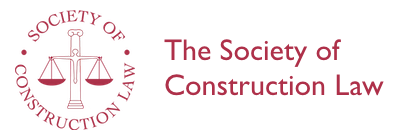SCL Ethics Group
SCL Ethics Group
In 2003, the Society of Construction Law set up a group to consider the question of ethics in the construction industry, prompted by a call by Professor John Uff (made in a lecture at King' College in July 2003 and downloadable as a pdf file) for the Society to prepare a multi-disciplinary ethical code covering the activities of all professionals involved in construction law activities.
The working group considered the options for meeting the challenge set by Professor Uff, and made a number of recommendations.
The working group has now drafted the following statement of ethical principles, and prepared guidance on these principles.
Statement of Ethical PrinciplesEthical conduct is the compliance with the following ethical principles.
These principles apply to the work of all professionals working in the construction industry, whatever their original qualification or affiliation. Guidance on ethical principlesApplication of statementThe statement of ethical principles applies to persons as individuals, whether they work as an independent professional or as a partner, associate, director or employee of a firm or company. Persons who work on behalf of a firm or company have additional responsibility to ensure that this statement of good practice is complied with by the firm or company to the extent of their authority. Legal and other dutiesThe statement of good practice is in addition to any other professional code that may apply. The statement of good practice is part of and additional to contractual and other duties taken on under civil law The statement of good practice applies independently of any requirement imposed by or breach of criminal law. Unethical conductUnethical conduct is the deliberate or reckless disregard for the ethical principles, as they would apply to the ordinary standards applicable to the activity being undertaken - the recognised practice in that profession. |
Contributions are invited on these principles - either agreement or disagreement. Please let the working group have your views. Email your comments to ethics@scl.org.uk.
The group is now considering how to present guidance on the application of these principles, using practical examples. Contributions and thoughts for this next stage are also welcome.
Quoting the Statement of Ethical Principles
Provided that the Society's written permission is sought (email us), the Statement of Ethical Principles may be reproduced in articles, seminar notes etc. The source must be acknowledged and the website address, www.scl.org.uk, given.
